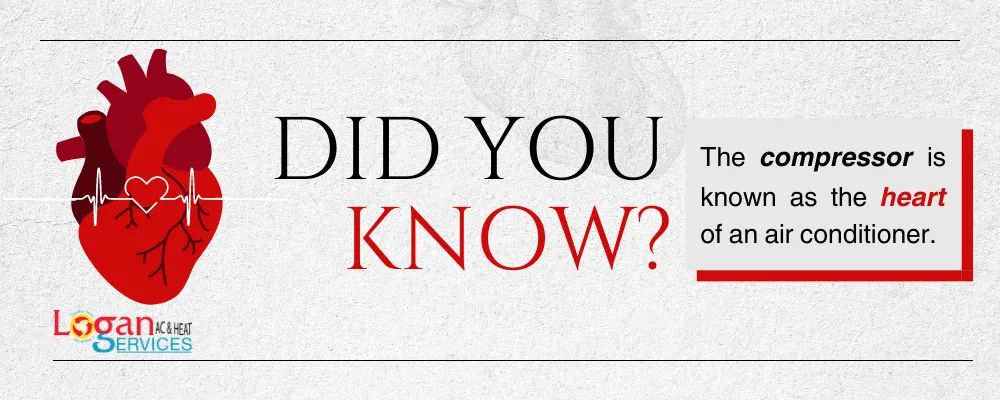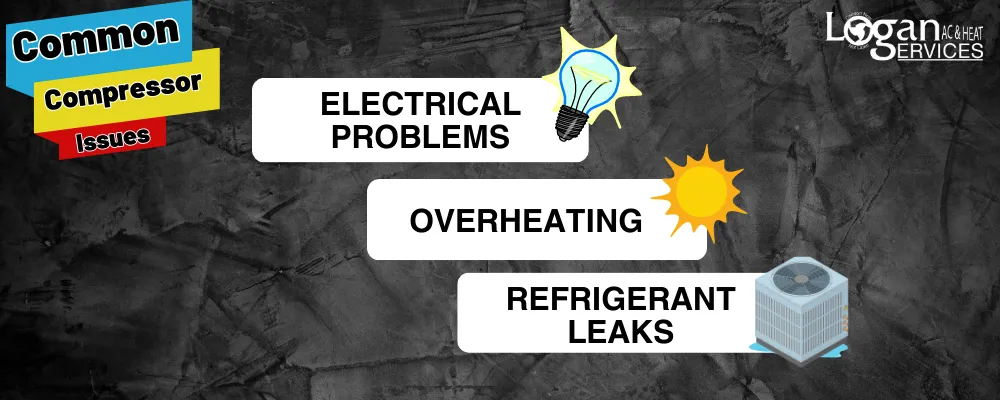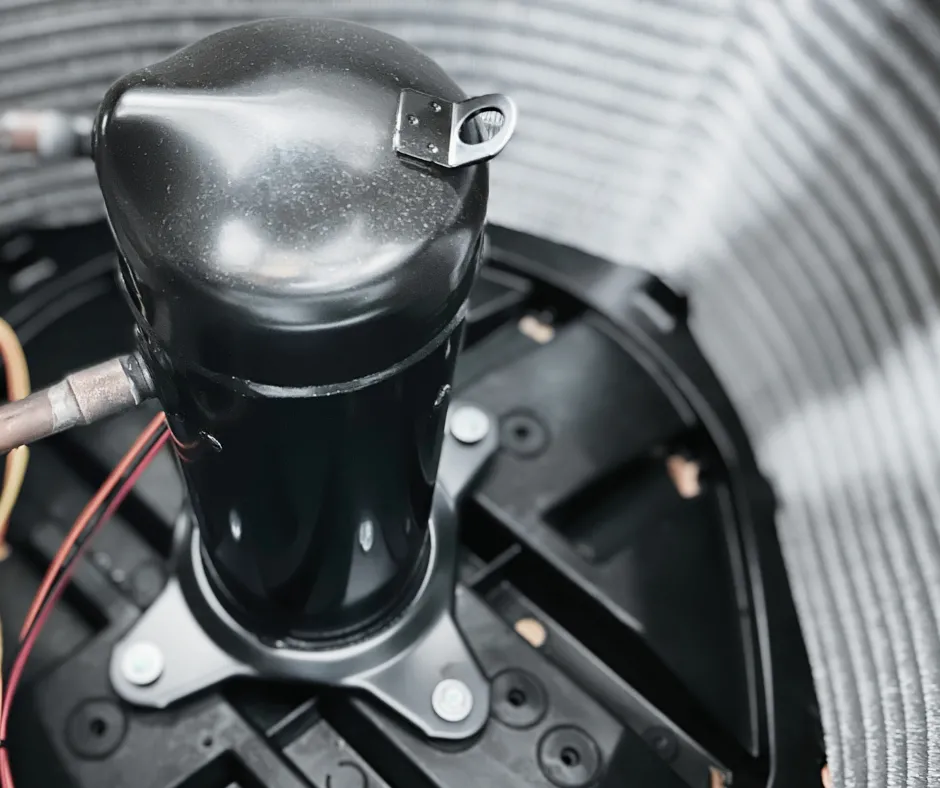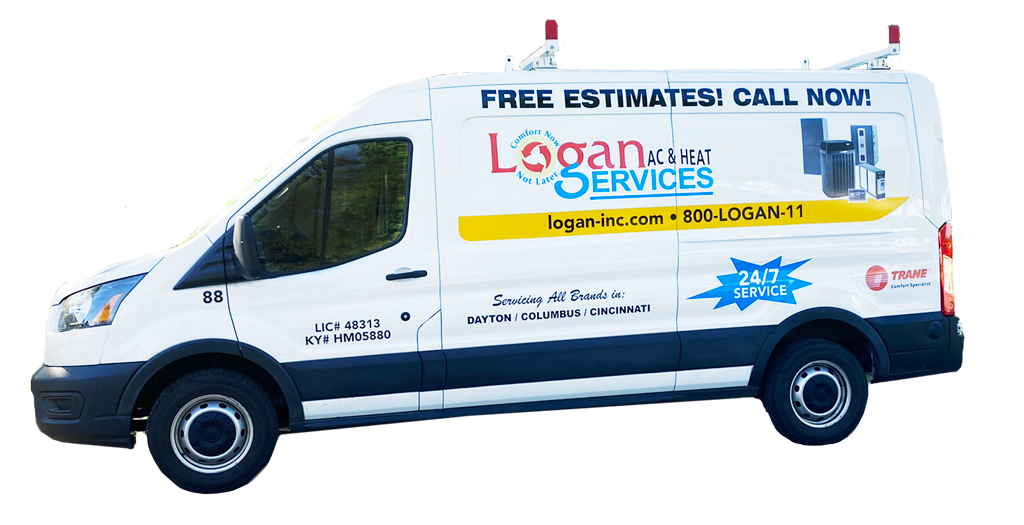The HVAC compressor is the heart of any air conditioning or heating system. It is responsible for compressing the refrigerant, which then circulates through the system and removes heat from the air. Without a working compressor, your HVAC system will not be able to function properly.
Understanding the HVAC Compressor
The HVAC compressor is a mechanical device that uses a motor to compress the refrigerant. The refrigerant is a special type of gas that changes from a liquid to a gas at a relatively low temperature. When the refrigerant is compressed, it becomes hotter and takes up less space. This allows it to absorb more heat from the air.
The compressed refrigerant then flows to the condenser, where it releases its heat to the outside air. The now-cool refrigerant then flows to the evaporator, where it absorbs heat from the indoor air. The cycle then repeats.
Compressor Function and Importance
The HVAC compressor is essential for the proper functioning of any air conditioning or heating system. Without a working compressor, the system will not be able to remove heat from the air, which will make it difficult to keep your home or office comfortable.

In addition to its primary function of compressing the refrigerant, the HVAC compressor also plays an important role in the overall efficiency of the system. A well-functioning compressor can help to improve the system’s energy efficiency, which can save you money on your energy bills.
Types of HVAC Compressors
There are several different types of HVAC compressors that have been used throughout the years for different heating and air applications, each with its own advantages and disadvantages. The most common types of compressors include:
Reciprocating compressors
Reciprocating compressors are not often used in modern air conditioners anymore. The mechanics in a reciprocating compressor are pistons, which compresses air by moving back and forth within a cylinder. They are not widely used today because they can be noisy and have a shorter lifespan than other types of compressors.
Rotary compressors
Rotary compressors are also not widely used in today’s central air systems, but they are sometimes utilized in window ac units or ductless ac and heat pump brands. Rotary compressors are more durable than reciprocating compressors, so they have a longer lifespan.
Screw compressors
Screw compressors are one of the most efficient types of compressors available. However, they are also the most expensive and complex. Screw compressors are typically used in large commercial and industrial HVAC systems, so they aren’t seen in residential applications.
Scroll compressors
Scroll compressors are a relatively new type of compressor that is becoming increasingly popular in modern ac equipment due to their efficiency and quiet operation. Scroll compressors are also very compact, which makes them ideal for use in small spaces. Many popular and consumer favorite HVAC brands, such as Trane, manufacture air conditioners with scroll compressors.
Compressor Components
The HVAC compressor is a complex machine that consists of several different components. Some of the most important components of the compressor include:
- Motor: The motor provides the power to drive the compressor.
- Valves: The valves control the flow of refrigerant in and out of the compressor.
- Oil sump: The oil sump collects the oil that is used to lubricate the compressor.
- Cooling system: The cooling system removes heat from the compressor.
Troubleshooting HVAC Compressor Problems
If your HVAC compressor is not working properly, there are multiple things an experienced HVAC technician can do to troubleshoot the problem. First, they may check the motor to make sure it is getting power. If the motor is not getting power, they may need to check the fuse or circuit breaker.
If the motor is getting power, the next option may be to check the refrigerant level. The refrigerant level should be checked by a professional regularly and topped off as needed. If the refrigerant level is low, the compressor will not be able to function properly.
If the refrigerant level is correct, your technician may decide to check the compressor for leaks. If there are any leaks, the compressor will not be able to function properly and will need to be repaired or replaced.
HVAC Compressor Maintenance and Repair
Regular maintenance and timely repair of HVAC compressors are crucial for efficient and reliable system performance. Proper care can extend the lifespan of the compressor, reduce energy consumption, and save on repair or replacement costs.
Importance of Regular Maintenance and Efficiency
Regular maintenance is crucial to maintaining the efficiency of your HVAC compressor. This includes cleaning or replacing air filters, inspecting ductwork for leaks or obstructions, and checking refrigerant levels. Proper lubrication, tightening of electrical connections, and cleaning of coils are also important aspects of regular maintenance. Scheduling regular tune-ups and maintenance can improve system efficiency, extend the life of your compressor, and reduce the risk of costly repairs or replacements.
Preventative Maintenance Tips
Some basic preventative maintenance tips homeowners can to do help their HVAC compressors include:
- regular inspections or tune-ups
- cleaning the air conditioner
- frequent filter changes
The most impactful compressor maintenance and repair will need to be left to a professional HVAC technician. When issues arise, a service technician can examine the compressor for signs of wear or damage, such as leaks, corrosion, or excessive noise. An expert may clean the compressor, especially its cooling fins, to ensure proper heat transfer and prevent overheating. When needed, a professional may even decide to lubricate moving parts, such as bearings and motor, to minimize friction and extend component life. It’s also important to regularly check and replace air filters, which can impact compressor performance if dirty or clogged. Finally, an HVAC tech can monitor system pressure and temperature levels to ensure efficient operation and early detection of potential compressor issues.
Common Compressor Issues
Some common HVAC compressor problems include overheating, electrical issues, and refrigerant leaks. These issues often result in inefficiency, reduced performance, and potential damage to the compressor or other system components if not addressed promptly.

Overheating
Compressor overheating can occur due to various reasons, such as dirty cooling fins, a clogged air filter, low refrigerant levels, or faulty cooling fan. Overheating can cause the compressor motor to burn out or internal components to fail. Prevent overheating by cleaning the compressor and ensuring adequate refrigerant levels, proper airflow, and sufficient ventilation around the compressor unit.
Electrical Problems
Electrical issues, such as loose connections, faulty wiring, or damaged electrical components, can cause compressor malfunctions or failure. During a maintenance visit, a technician should regularly inspect the electrical connections and components associated with the compressor and repair or replace them as needed. Always consult an HVAC professional for electrical repairs, as they can be dangerous if not performed correctly.
Refrigerant Leaks
Refrigerant leaks can negatively impact compressor performance and damage the environment. Leaks often occur in joints, fittings, or damaged components, leading to low refrigerant levels and inefficient system operation. Regularly inspect the system for signs of refrigerant leakage and promptly repair any issues found. In the case of significant leaks, a professional HVAC technician may need to recharge the system and ensure proper refrigerant levels.

When to Call a Professional
Although a homeowner can perform some basic compressor maintenance tasks, many repairs and complex maintenance tasks require the expertise of a professional HVAC technician. Professional technicians possess the knowledge, experience, and tools necessary to troubleshoot and repair compressor issues safely and effectively. Consider calling an HVAC professional if faced with unfamiliar operational concerns that could be a result of compressor problems, significant refrigerant leaks, or complex electrical issues.
Energy Efficiency and Compressor Performance
Energy efficiency is a critical aspect of any HVAC system. The compressor, known as the “heart” of any HVAC system, plays a significant role in determining the overall performance and efficiency. Understanding the factors that affect compressor efficiency and making informed choices when installing, upgrading, or maintaining your HVAC system can lead to significant energy savings and reduced costs.
Factors Affecting Efficiency
Several factors can impact the efficiency of an HVAC compressor. Some of the key factors include compressor type, system design, and the seasonal energy efficiency ratio (SEER/SEER2). We’ll explore each of these factors, highlighting why they’re essential and how they can impact overall system efficiency.

Compressor Type
There are different types of compressors available for HVAC systems, each with varying degrees of efficiency. The most common types of compressors are scroll, reciprocating, rotary, and screw. For example, scroll compressors are known for their higher energy efficiency compared to reciprocating compressors due to their fewer moving parts, reduced chances of leakage, and better performance under a wide range of conditions. Most traditional cooling systems are manufactured with scroll compressors, so the biggest decision a professional with make is selecting the right scroll compressor size for your specific application, which can greatly impact energy efficiency and overall performance.
System Design
Proper system design is critical to ensure efficient compressor performance. This includes factors such as appropriately sized components, correct ductwork design and insulation, and proper placement of the indoor and outdoor units. An oversized or undersized compressor can lead to increased energy consumption and decreased efficiency. Consulting with a professional HVAC technician during the design and installation phase can help ensure optimal system performance.
Seasonal Energy Efficiency Ratio (SEER)
The SEER rating (or SEER2 rating for systems manufactured in or after 2023) is a critical performance metric for air conditioners and heat pumps, measuring the amount of cooling produced per unit of energy consumed during a typical cooling season. A higher SEER/SEER2 rating indicates a more energy-efficient system. By selecting an HVAC system with a higher SEER/SEER2 rating, you can reduce your energy consumption and lower your utility bills, making it a vital consideration when choosing a new system or upgrading an existing one.
Enhancing Efficiency and Reducing Costs
Improving the efficiency of your HVAC compressor can lead to significant cost savings over time. Some tips for enhancing efficiency and reducing costs include proper insulation, maintaining a clean and unobstructed airflow, using programmable thermostats, and scheduling regular system maintenance and tune-ups. Following these best practices can help extend the life of your compressor and improve overall system performance.
Importance of the Right HVAC Compressor
Choosing the right compressor for your HVAC system is essential to ensure optimal performance and efficiency. A well-suited compressor can provide consistent comfort, lower energy consumption, and reduce the likelihood of system breakdowns. Consulting with an experienced HVAC technician during the selection process can help you make an informed decision that best fits your specific needs.
About Logan AC & Heat Services:
At Logan, we are a family-owned and operated HVAC company that has been serving the Columbus, Cincinnati, and Dayton areas for over 50 years. We offer a wide range of services, including AC compressor repair and replacement. Our team of experienced technicians is highly skilled in diagnosing and repairing AC compressor problems. We also offer a variety of preventive maintenance services that can help you keep your AC unit running smoothly and prevent costly repairs.
If you are experiencing AC compressor problems, we can help. Contact us today to schedule an appointment. We look forward to hearing from you!
FAQs HVAC Compressor
What is the best type of compressor for my HVAC system?
It depends on your specific needs and circumstances, but in most cases, your central air system will utilize a scroll compressor. Consult with a professional HVAC technician who can assess your sizing requirements and recommend the most suitable compressor for your application.
How can I improve the efficiency of my existing HVAC system?
Some ways to improve efficiency include proper insulation, maintaining clean air filters, using programmable thermostats, and scheduling regular maintenance and tune-ups. Implementing these best practices can help enhance system performance and save on energy costs.
What is the optimal SEER rating for my HVAC system?
The ideal SEER rating depends on factors such as the climate in your region, your specific cooling needs, and your energy-savings goals. Generally, a higher SEER rating translates to better energy efficiency, leading to lower energy consumption and utility bills.
Understanding the various factors affecting compressor performance and efficiency, and making informed decisions when selecting, installing, and maintaining your HVAC system can lead to significant energy savings and improved overall system performance. Adopting best practices and partnering with a trusted HVAC professional can help you make the best choices for your unique needs and circumstances.


















